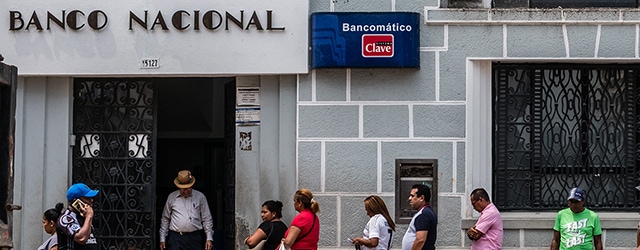Serious challenges face Latin America's newest economic policymakers.

“It’s a tremendous challenge,” says Juan Delgado, head of Fixed Income Trading at Panama’s Global Bank, describing the difficulties ahead for Hector Alexander, the country’s new finance minister. The challenges for his counterpart in Paraguay are only slightly less daunting.
Alexander faces the triple challenge of capping the fiscal deficit at 2%, boosting economic growth and tackling stubborn corruption. “He has a strategy to contain expenses,” says Delgado. But so far, the deficit is trending higher.
Just as crucially, Alexander, a US-educated economist who helped Panama regain control of the canal in 2000, must work to combat corruption surrounding the granting of public works contracts. Currently, his team is auditing government accounts to determine how much Panama City owes contractors participating in the nation’s infrastructure boom, which already caught the past administration in a $59 million graft scandal involving Brazilian builder Odebrecht. “They plan to start paying agriculture first and then construction [suppliers],” says Delgado. “Many construction and infrastructure projects were stalled during the past few years.” He estimates the bill will come in at $1.3 billion.
Settling these arrears is crucial to reactivating the building sector, which the government is hoping can push economic growth to 4% this year, from 3.7% in 2018. Either way, it would still trail the boom of the past decade, when a spate of office towers, hotels and apartments remade the skyline in the image of Miami.
Alexander, 76, must also help Cortizo remove Panama from the US Office of Foreign Assets Control’s (OFAC) list of countries supporting terrorism and narcotics financing. Panama must also work to improve its international image in the wake of the Panama Papers revelations.
Paraguay’s new finance minister, Benigno Lopez, has some of the same headaches—specifically corruption and sluggish growth. Perhaps his most urgent challenge is reviving flagship soy exports after inclement weather ruined this year’s harvest, pushing the GDP growth forecast below 3%.
Lopez must also tackle corruption. Specifically, he must manage the drafting of a new contract governing Paraguay and Brazil’s sharing of the Itaipu hydroelectric dam. The latest version inspired vocal opposition—and calls for President Mario Abdo’s resignation.
“This [deal] was negotiated behind everyone’s back,” says Gabriel Boero, director of business development for M&B Law Firm, which is helping Paraguay attract foreign investment. “It weakened the government’s image very much.”



